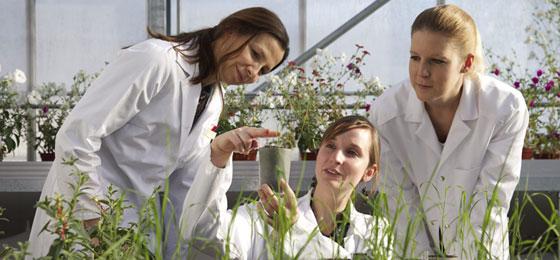Young researchers in Switzerland: improving basic conditions

Encouraging young talents to pursue a career in research is the uppermost priority of the SNSF. By consistently implementing measures designed to improve the basic conditions for up-and-coming scientists in Switzerland, the SNSF delivered on its promises in 2013. (Source: Annual Report 2013)
In 2013, the SNSF funded a total of 2,500 doctoral students and 4,500 postdocs via projects and programmes. In addition, it made available CHF 180 million for career funding schemes, thereby supporting 1,100 young researchers who aim to pursue an academic career. The SNSF is convinced that academic careers must become more attractive for young researchers if Switzerland is to maintain its leading position as a research location in the global arena. For this reason, grooming the next generation of scientists is one of the main aims of the SNSF’s Action Plan 2013 – 2016, with a series of appropriate measures already having been agreed and/or introduced in 2013.
Doc.CH: 27 grants to young researchers
With the introduction of Doc.CH, the SNSF increased its efforts to promote doctoral students in Switzerland. The new career funding scheme enables promising young researchers in Switzerland to write a doctoral thesis on a topic of their own choice in the humanities and social sciences. The SNSF awarded the first Doc.CH grants in July 2013. Of the 96 applications received by the submission deadline in March 2013, the SNSF approved 27 in total, 14 thereof in the humanities and 13 in the social sciences.
New "return grant"
In order to create clearer conditions and more flexibility, the SNSF has reorganised its mobility fellowships for periods spent abroad with effect from 2013. The age limits have been replaced by benchmarks in order to take better account of individuals’ personal situations. Holders of Advanced Postdoc.Mobility fellowships can now divide their period abroad into individual stays. In addition, they can plan to return to a research institution in Switzerland thanks to the "return grant" introduced as of 2014. The grant runs for three to twelve months and comprises a salary and social security contributions.
Family: supporting postdocs
On 1 June 2013, the SNSF introduced the 120% support grant for postdoctoral researchers employed in SNSF-funded projects. The purpose of the grant is to help researchers find the right balance between their academic career and family commitments by allowing them to reduce their working hours. Using the freed-up worktime percentage and an additional 20% financed by the SNSF, they can hire a "support person" to work on their project. Alternatively, grantees can opt for a contribution towards childcare costs; the two options may also be combined.
Salary policy reviewed
In order to adequately support employees in projects, the SNSF decided last year to increase the salaries of doctoral students by 7% as of 1 January 2014. In addition, doctoral students can now benefit from a "protected time" of at least 60% of a full-time equivalent, during which they can concentrate on their doctoral thesis. The SNSF also decided to change the salary policy applicable to postdocs in 2014. The new features will include a simplified structure with regard to employee categories and new arrangements for postdocs whose salaries are paid by the SNSF: instead of the institution-based rates, a salary bracket of CHF 80,000 to 105,000 will apply to these researchers, with a transition period of five years.
An opportunity at the right moment
With these measures, the SNSF is looking to ensure that academic careers in Switzerland are seen as a more attractive prospect and to give young researchers an opportunity to prove themselves at key moments in their career path. The SNSF will review its career funding schemes in view of the multi-year programme 2017–2020. The Specialised Committee Careers will analyse the individual career phases (doctorate, postdoctorate, assistant professorship) by autumn 2014 and propose ways of optimising the current system to the National Research Council.